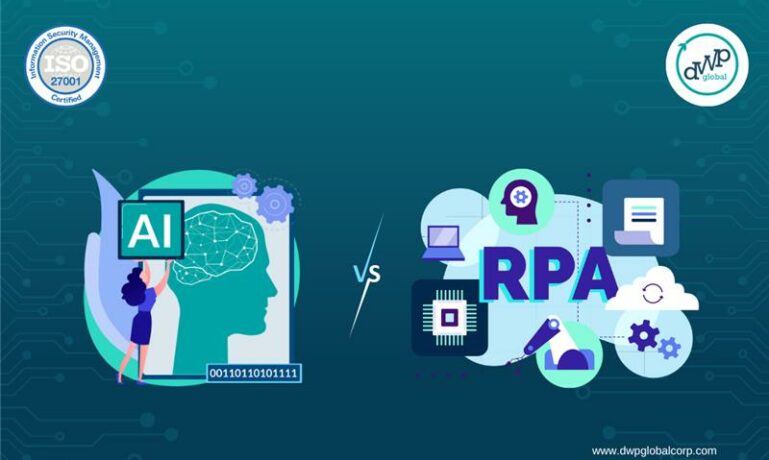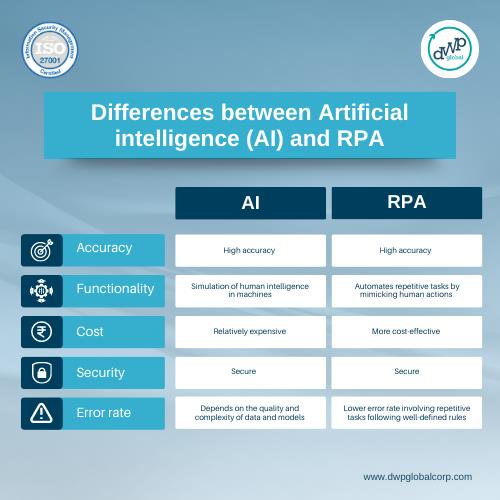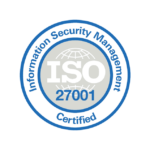- By: Admin
- July 26, 2023
- 2427 views

Robotic process automation (RPA) uses computerized robots to standardize and automate repetitive tasks. RPA robots perform repetitively in the same process. They are not cognitive to grasp repetitive processes. They do not possess the intelligence to improve and find ways to perform a programmed task better.
RPA robots can be considered virtual assistants and perform repetitive tasks that don’t require cognitive capabilities but consume valuable time. Unlike humans, they do not get bored with these tasks and efficiently complete them exactly as instructed.
If you want to explore more about Certified RPA developers, check out our client’s website to learn more about RPA technology. You won’t regret it!
Artificial Intelligence (AI)
Simply put, AI is the procedure of programming a computer to make it intelligent and make its own decisions. This can be achieved by implementing genetic algorithms, rule-based systems, fuzzy logic systems, artificial neural networks, machine learning, and decision trees.
There are three types of Artificial intelligence (AI): Limited memory, Reactive machines, and generalized artificial intelligence.
Limited Memory
Such AI systems can learn patterns from past experiences and better themselves in the future to make the right decisions.
Reactive Machines
These machines are simple and react to their environment. They are incapable of learning from patterns and bettering themselves.
Generalized Artificial Intelligence
This is the advanced version of AI. It can learn, remember, and make decisions exactly like humans.

Differences between Artificial Intelligence (AI) and RPA
Artificial intelligence (AI) is a vast concept that covers machine learning models, Natural language processing (NLP), and other forms of intelligence process automation. On the other hand, Robotic process automation (RPA) is a technology. Let us look at the significant differences.
Accuracy
AI is more accurate than RPA and can make decisions using data. Robotic process automation (RPA) is confined by the data available for it. RPA tools have more accuracy than AI as they can be configured to perform tasks similarly.
Functionality
AI has a lot more to provide when it comes to functionality. Image recognition, predictive analytics, and Natural language processing are used in AI. Conversely, RPA is constrained to tasks that humans can perform. RPA can perform non-cognitive repetitive task tasks but lack to learn from the patterns in the unstructured data and perform better, unlike AI.
Cost
RPA is affordable and requires less investment in hardware and software, unlike AI operational costs.
Security
Both RPA and AI are secure and run based on mathematic algorithms. Expectedly, AI is more secure than RPA as it can use raw data to extract patterns and learn from them.
Error Rate
RPA has a higher error rate, as it is bounded by the rules set in it by the user and performs automated repetitive tasks. Contradicting it, AI has cognitive automation that allows it to learn, make mistakes, and improvise.
If you are starting with RPA and looking for guidance, check out DWP Global Corp, one of India’s Best RPA Implementation Partner. You would find efficient services to start with RPA.
Benefits Of RPA Over AI
RPA is used to perform non-cognitive repetitive tasks without needing complex programs to design them. This makes it easier to finish time-consuming, tedious tasks for humans.
RPA software robots can work 24/7 without getting worn out. They are more efficient than human workers with higher productivity levels, similar to robotic desktop automation.
RPA bots can be programmed to perform certain tasks and follow a set of rules assuring they comply with company compliances reducing the risk of human error rate.
RPA is more cost-effective than AI, which doesn’t require hardware and software. RPA can be made more adaptable to AI solutions.
If you look forward to installing RPA tools and seeking proper guidance, check out Kofax RPA Tool Installation Partner DWP Global Corp for more details.
Choosing The Right Technology For Your Business
Choosing the right technology depending on your business requirement is a vital criterion. The two major metrics are the capabilities of the technology and how the technology can fit into your business processes. Suppose you are looking to execute AI and RPA in your business. It is crucial to be aware of the differences between the two technologies. Artificial Intelligence focuses on decision-making and implements actions based on structured data. On the other hand, RPA is designed to automate non-cognitive and repetitive tasks-.
The right technology depends on the needs of your business. If you are looking for repetitive and manual work, RPA is best suited to accomplish such tasks. But if your looking for a technology that makes decisions and implements complex tasks based on the data, then AI with machine learning would be a better option.
RPA would accelerate your business process automation and doesn’t require AI capabilities which would require higher budgets. DWP Global Corp is a Kofax implementation Partner in the USA that provides you with many services to set up with RPA.
Conclusion
Automation technologies have become necessary to perform and operate organizations and serve various needs of business processes. As of now, you have learned the difference between the two technologies. It is easier to make better decisions accordingly based on your business needs!

